Overview
2025 Fellows
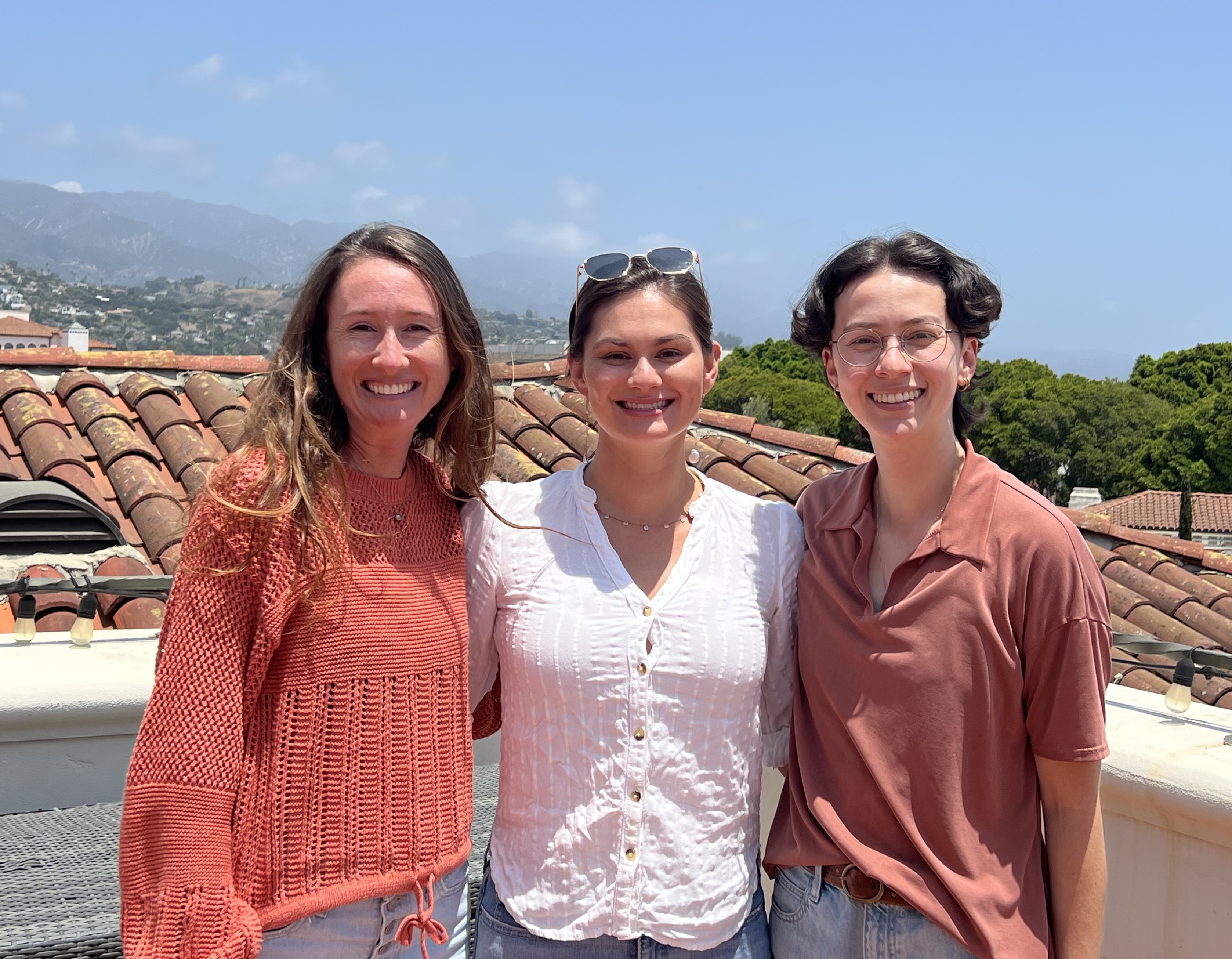
The 2025 fellows on the terrace at NCEAS!
Carmen Hoyt 
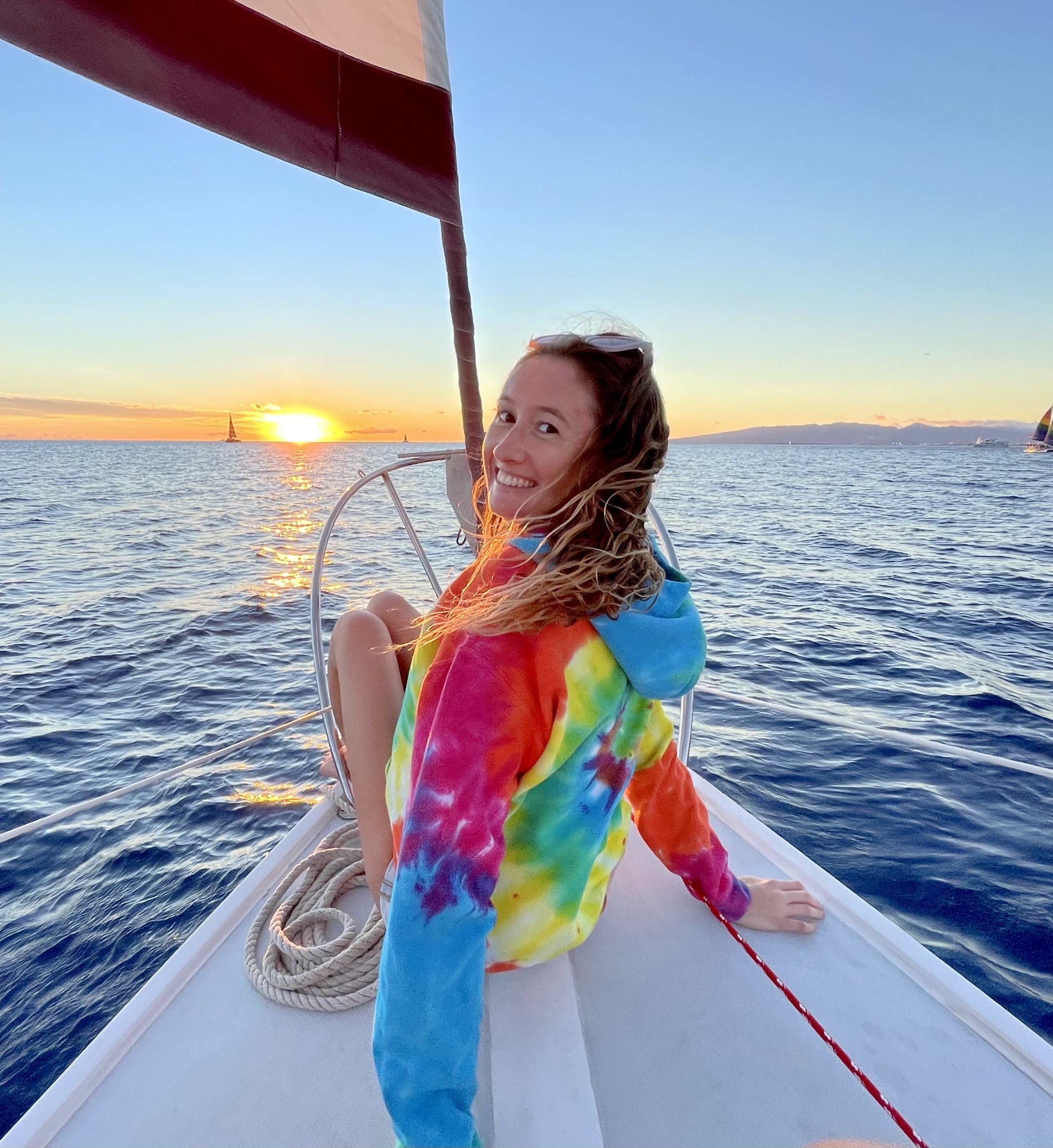
Carmen’s journey began on the Gulf Coast of Florida, where she first fell in love with the ocean. Her childhood experiences on the water inspired her to pursue a B.S. in Biology (concentration in Marine Biology) and a B.S. in Earth and Ocean Sciences at Duke University (2018).
After graduation, she quite literally “dove” into opportunities to work and travel all over the world. Some of the highlights include aquaculture in Palau, PADI SCUBA instruction in Indonesia and the Turks and Caicos, and environmental consulting in Hawaii. Her work as a consultant introduced her to various environmental applications for data science, and she ultimately decided that the Master of Environmental Data Science (MEDS) program at the Bren School was an excellent fit for her personal interests and career aspirations.
As a MEDS student, she authored a successful capstone proposal with emLab and Global Fishing Watch, blending her technical skills with her passion for ocean science. Carmen and the Seamissions team were able to calculate emissions estimates for various seafood groups and countries, providing critical insights to move towards a more climate-aware seafood system.
When she is not at her computer, you can find her in the ocean surfing, sailing, or taking underwater photos!
Haylee Oyler 
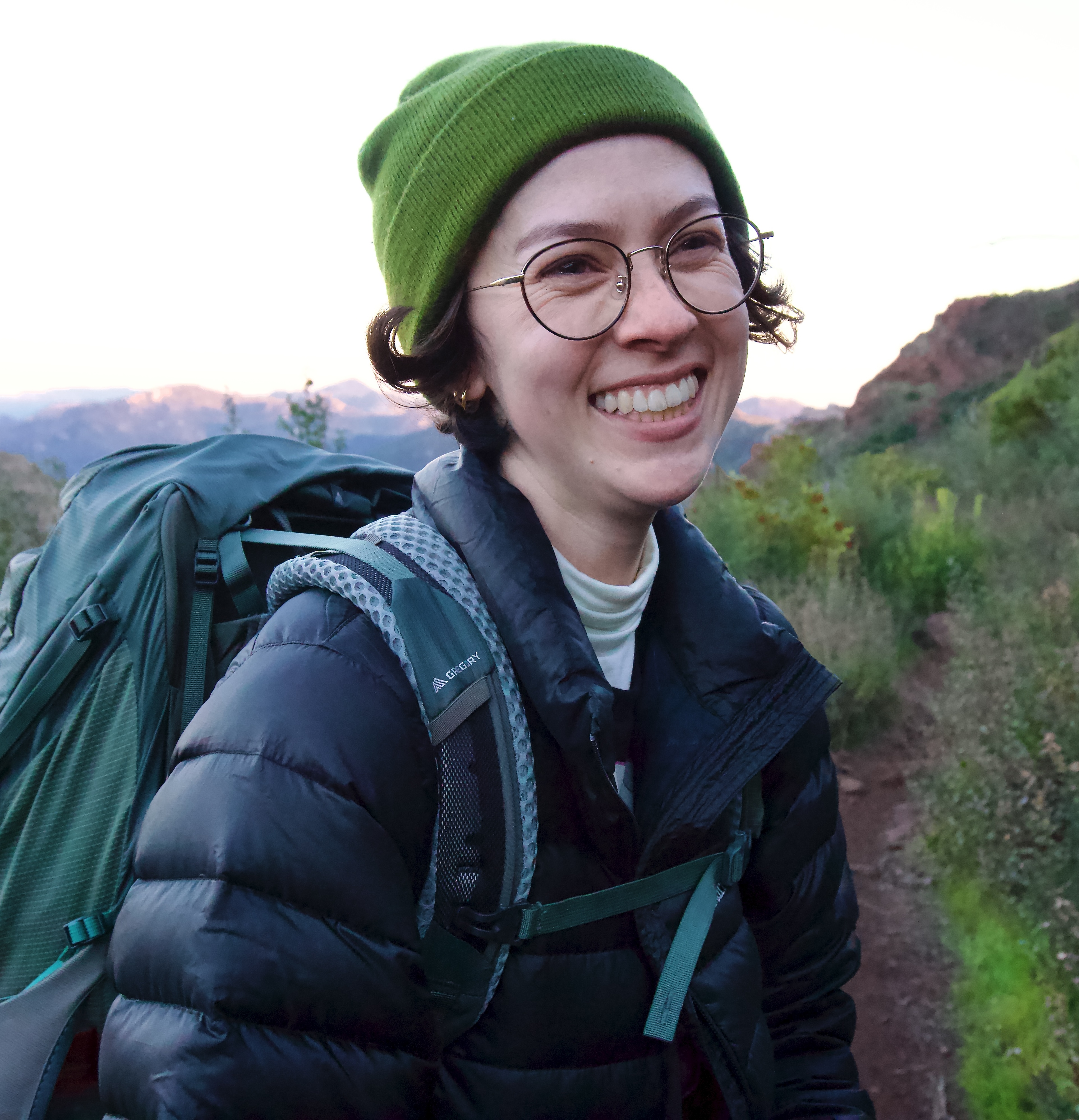
Haylee Oyler is passionate about the intersection of people and nature. Growing up in California’s Central Valley, they saw firsthand the interconnectedness of environmental pollution and public health. This led Haylee to study Environmental Science at the University of California, Berkeley. There, they worked on multiple projects studying human-environment interactions, such as shifting wildfire regimes in response to climate change and the effects of conservation policy on mangrove pollution. Their honors senior thesis explored community science participation during a global pandemic and deepened their interest in data justice and representation in science.
After graduating, Haylee worked as a research technician in a community ecology lab at the University of California, Los Angeles, where they continued to strengthen their analytical and technical skills. They also gained experience mentoring students and promoting a safe working environment for all lab members.
Now, Haylee is a recent graduate of the Master of Environmental Data Science program at the University of California, Santa Barbara. Haylee has continued to explore principles of environmental justice in their capstone project, where their team improved the Climate and Economic Justice Screening Tool to incorporate a broader assessment of disadvantaged communities in the United States. They served as the lead data analyst and developer for their team’s online geospatial mapping tool that visualizes environmental hazards from over 30 data sources.
Haylee is excited to bring their community-centered perspective and technical skills to the Ocean Health Index at NCEAS. Outside of their career aspirations, Haylee enjoys rock climbing, volleyball, reading, writing, and watercolor!
Madison Enda 
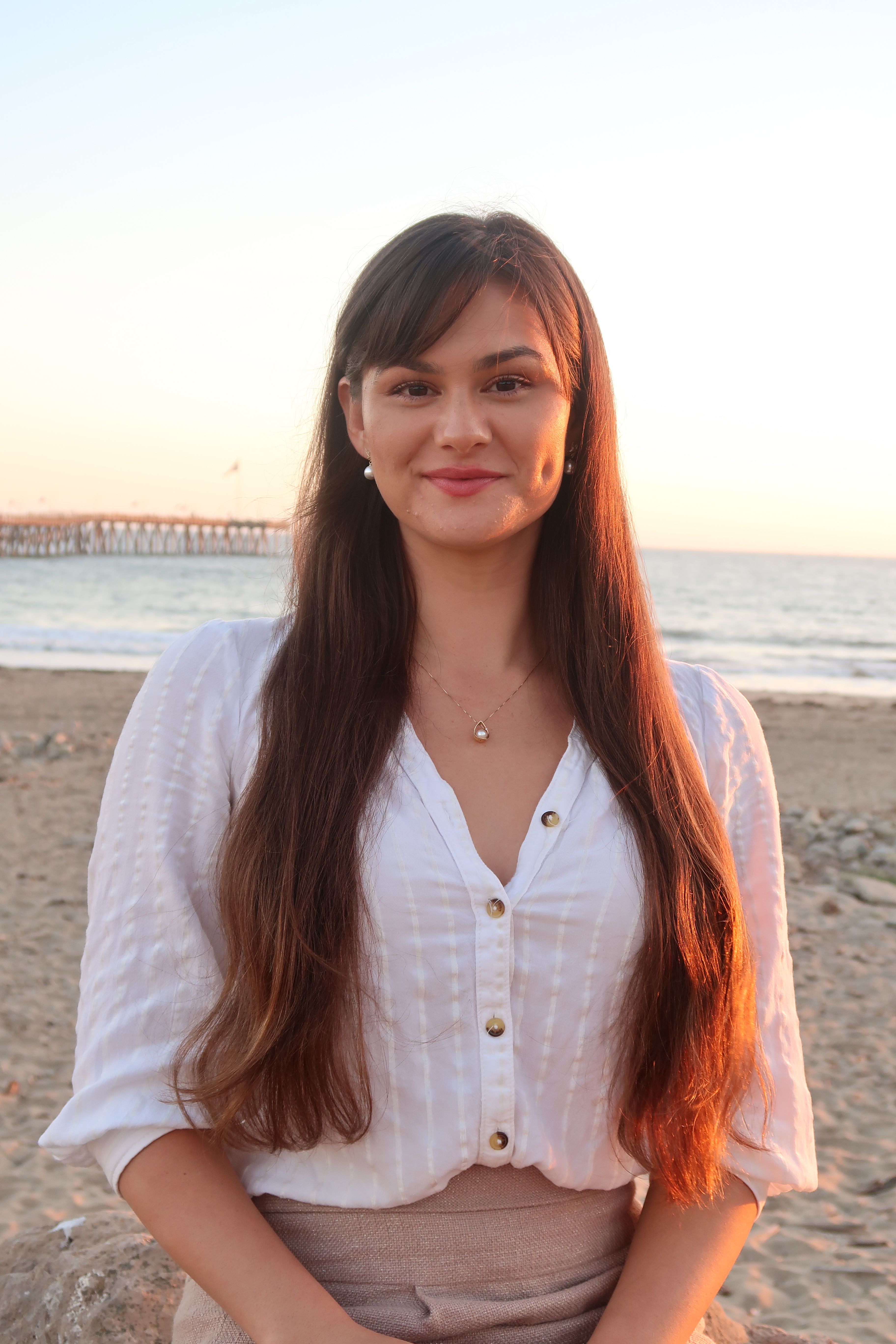
Madison Enda grew up in Southern California, where she fell in love with coastal and marine environments by exploring the beaches near her home and spending a ton of time in the water! She attended the State University of New York at Stony Brook on an D-1 athletic scholarship for competitive swimming, and received her BS in Marine Biology with minors in ‘Ecosystems & Human Impact’ and ‘Coastal Environmental Studies’.
During this time, she developed a keen interest in marine foundation species ecology, particularly how major anthropogenic stressors impact their distribution, demography, and adaptation rate. Madison went on to study abroad in Eilat, Israel, learning more about coral ecology from the reefs in the Red Sea.
After a brief stint in coral aquaculture, she participated in coral reef ecology research through the Pacific branch of the Naval Information Warfare Center (NIWC PAC) based in San Diego, California. This experience strengthened her desire to model changes in marine environments and provide support for the people who rely on them, and it ultimately led her to the Master’s of Environmental Data Science (MEDS) program at Bren. Over the course of the MEDS program, Madison authored a capstone project on habitat evaluation within the California Marine Protected Area network, which afforded her the opportunity to work with large geospatial datasets on foundation species coverage and calculate habitat distribution and abundance. Madison was extremely excited at the prospect of her work being used by researchers to directly inform real world decisions, and can’t wait to see what new challenges await her during her time as an OHI fellow!
When Madison has free time, she loves spending it in the water! She feels greatly rejuvenated when swimming, scuba diving, or amateur free diving, but you’ll also catch her antiquing, thrifting, catching critters in animal crossing, or returning overdue books at the public library!
2024 Fellows
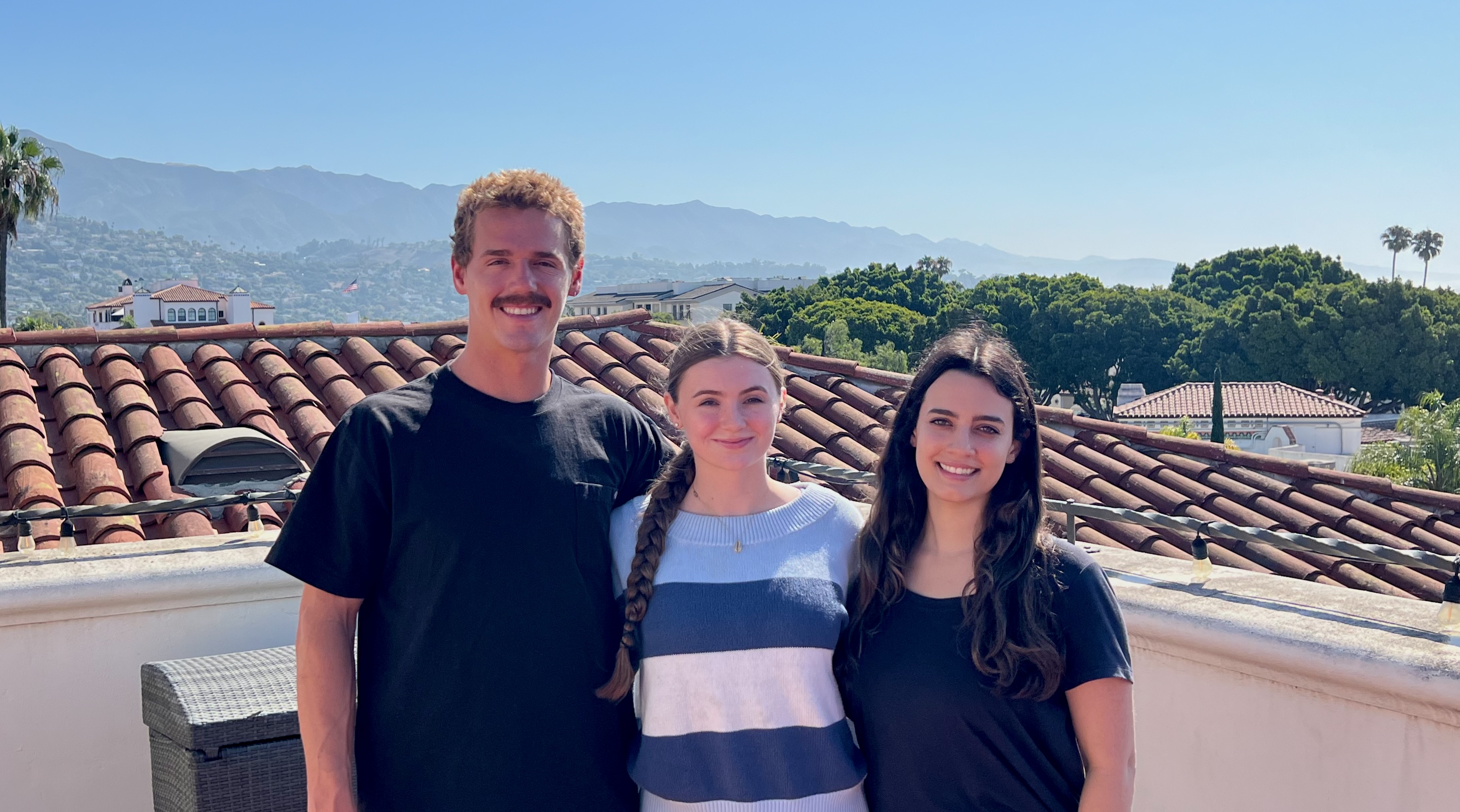
Anna Ramji 

Anna Ramji grew up hiking and fishing along the Eastern Sierra Nevada mountain range, where she developed an interest in ecology and the impacts of climate change on native ecosystems. She spent much of her childhood on Northern Californian beaches, developing a profound respect for the power, beauty, and importance of the Pacific Ocean. During her time as an undergraduate at the University of California, Berkeley, she worked as a research assistant and laboratory manager at Caldwell Laboratory, studying stomatopods and several species of octopus. Anna enjoyed taking extra-curricular courses in Data Science, Japanese, French, and Urban Design. She earned her Bachelor of Science degree in Environmental Sciences with a dual focus in Biology and Chemistry, graduating with Honors in 2021. She has since worked to co-author a peer-reviewed paper on body patterns of Octopus chierchiae with alumni from Caldwell Lab, which was published in PLOS One in April, 2023.
Her interest in data science – particularly data visualization as a powerful tool for scientific communication – drew her to the Master of Environmental Data Science (MEDS) program at the Bren School of Environmental Science & Management. As a MEDS graduate student, she enjoyed combining her expertise in environmental issues with her passion for data science and visualization to become an enthusiastic and inclusive scientific communicator while maintaining a tidy and reproducible data science practice. She particularly enjoyed courses in Machine Learning, Databases and Data Management, Geospatial Analysis & Remote Sensing, and Data Visualization. In her capstone project, she helped create a tool for researchers at the Santa Barbara Botanic Garden to plan surveys of milkweed species in the Los Padres National Forest for conservation efforts. Anna was the sole recipient of the faculty-nominated Academic Achievement Award in the MEDS class of 2024.
She is interested in a wide range of sustainability-oriented topics, including agroecology, clean energy, and working with marine ecological data. Anna hopes to bring her environmental data science experience and passion for developing data-driven sustainable solutions to future roles.
Dustin Duncan 

Dustin Duncan graduated from the University of California, Santa Barbara in 2022 with a B.S. in Aquatic Biology. Growing up in San Diego, CA, Dustin was in and around the water his entire life. As a result, his goal in his undergraduate career was to learn more about the relationship between humans and aquatic ecosystems. While conducting undergraduate research he began to realize how much more work was needed to understand how this relationship could be both widely sustainable and profitable. After graduation, Dustin participated in an internship developing Community Based Fisheries Management plans in the Hawaiian Islands. Now as a graduate student at the Bren Masters of Environmental Science and Management his goal is to investigate how to effectively incentivize companies to invest in marine resource management from a bottom-up perspective. More specifically, he hopes to explore various practices of marine management that benefit marine ecosystems while ensuring shareholder profit for both communities and investing companies. He will also explore how to effectively communicate the effect of profitable sustainable endeavors to business executives.
Sophia Lecuona Manos 

Sophia Lecuona Manos is passionate about fisheries management and science communication. She graduated from the University of California, Santa Barbara with a B.S. in Aquatic Biology in 2022. In the Kuris Parasitology Lab, she co-led a team of undergraduates to conduct research on a newly introduced copepod that consumes the eggs of rock crabs. Her team was awarded a grant from the UCSB Coastal Fund, and she allocated funds to crab husbandry, conference registrations, and publication costs.
Sophia was honored with the "Best Student Presentation Award" at the 2022 International Conference on Copepoda (ICOC) and the 2023 Southern California Academy of Sciences (SCAS) meeting, strengthening her enthusiasm for effectively communicating scientific discoveries to both fellow scientists and the broader public. Her team was also invited to present at the 2023 Ecological Society of America (ESA) meeting.
As Sophia researched the rock crab fishery further, she was alarmed to find it was limited in data and needed improved management protocols. Sophia pursued the Bren School to deepen her understanding of resource management and the interdisciplinary aspects of sustainability within aquatic ecosystems. She is specializing in Coastal Resource Management with a focus on Strategic Environmental Communication and Media.
Her goal is to develop best practices for fisheries management and contribute to a more equitable food system by making scientific findings more accessible and impactful. She plans to achieve this by pursuing machine learning, geospatial analysis, and reproducible coding methods to identify and share solutions addressing natural resource challenges.
2023 Fellows
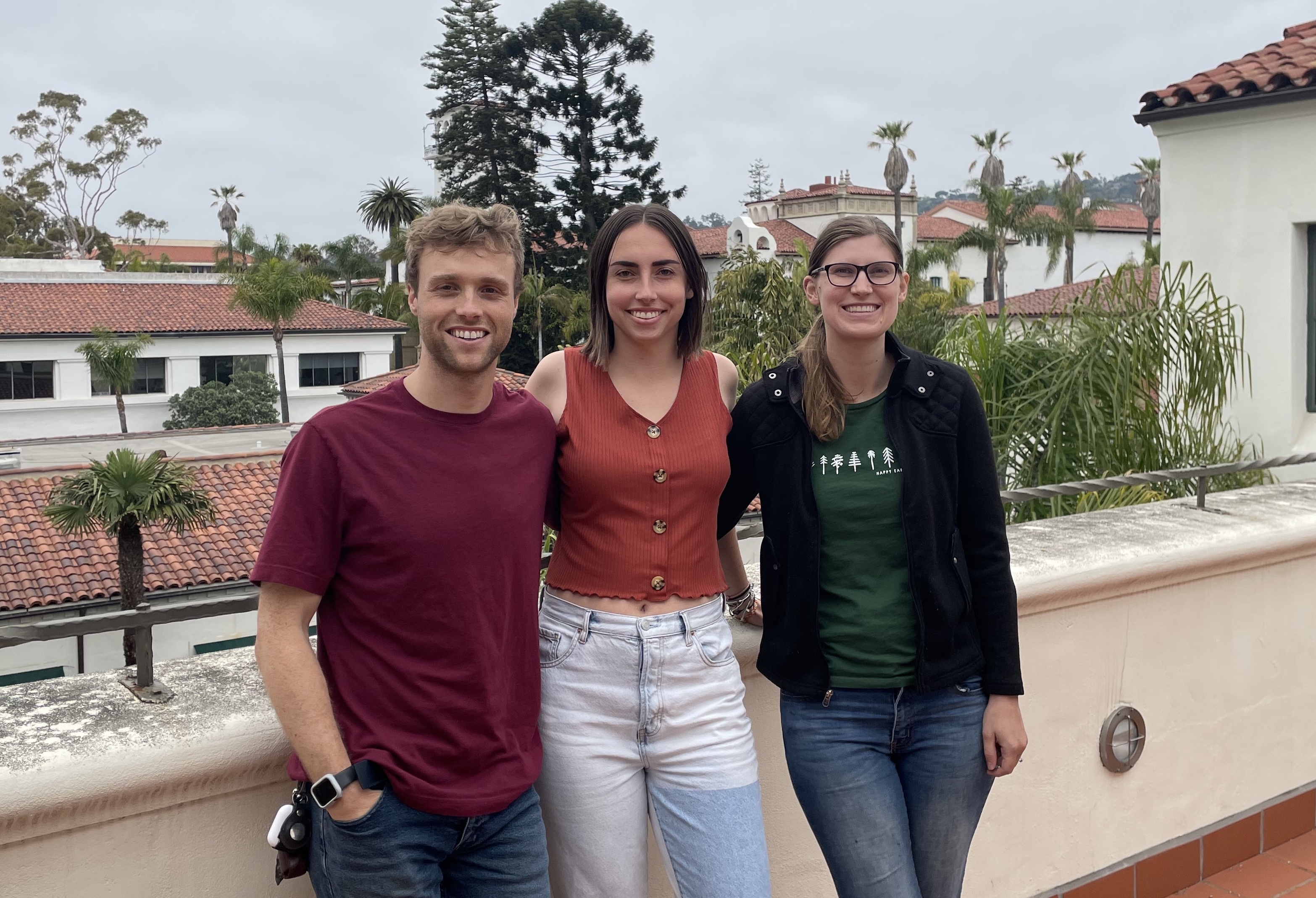
The 2023 Fellows are three students in the Environmental Data Science program at the Bren School of Environmental Science and Management.
Carlo Broderick 
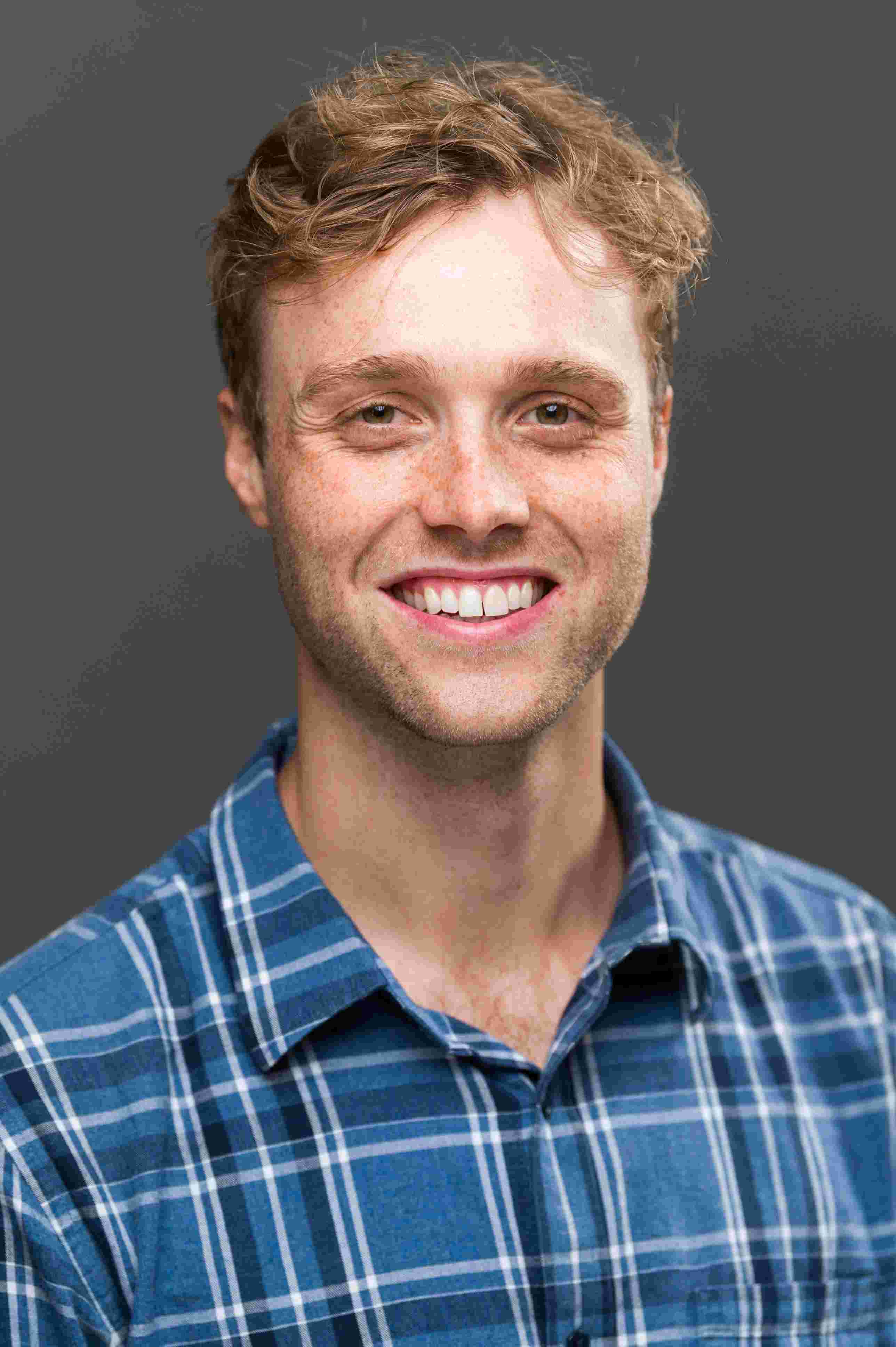
Carlo Broderick is currently pursuing a master's degree in environmental data science at UCSB's Bren School of Environmental Science and Management. He previously obtained a Bachelor's degree in Environmental Studies and Economics from the University of California, Santa Cruz, where his studies focused on non-governmental market regulation.
Carlo went on to become the first employee of SupplyShift, a software company focused on supply chain management and corporate responsibility. During his time at SupplyShift, Carlo was responsible for overseeing the implementation of data collection and analysis programs for the supply chains of multiple Fortune-500 companies. The company has now grown to have a team of over 60 individuals worldwide.
Following his tenure at SupplyShift, Carlo took on the role of program coordinator for the Mellichamp Sustainable Materials and Product Design Initiative at UC Santa Barbara. These professional experiences provided Carlo with extensive knowledge and expertise in sustainability organizations that utilize data to address environmental crises.
His current interests include machine learning, remote sensing, and the subtle art of the slow cooked bean. Carlo plans to leverage the machine learning techniques, learned at Bren, to assess the increasingly large data sets coming out of the environmental and supply chain management industries, all with a focus on remote sensing and global information systems.
Erika Egg 
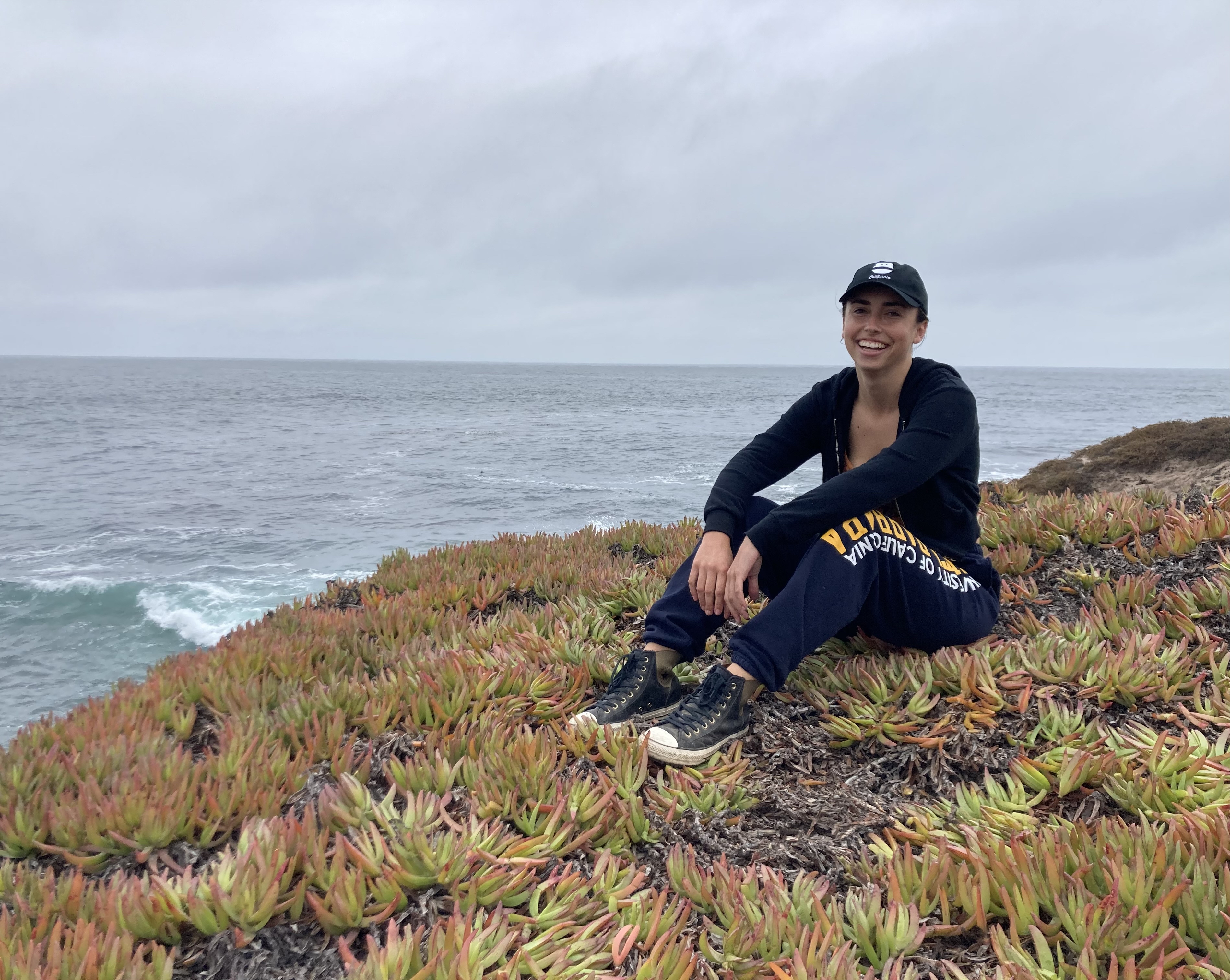
Erika has always had a wide variety of interests and has strived to continuously embrace all of her different passions. During her undergraduate education at UC Santa Barbara, where she entered as a Regents Scholar, she decided to triple major in Environmental Studies, Linguistics (Emphasis in Language and Speech Technologies), and History of Art and Architecture (Emphasis in Architecture and Environment), graduating in 2022 with highest honors and membership in Phi Beta Kappa. During this time, she developed a greater passion for computational data analysis methods and a depth of issues at the intersection of her three primary fields of study. Her research experience has included lab, field, and data analysis work related to marine chemical analysis, landscape restoration, urban forestry, food security, and the environmental impacts of COVID-19.
She is now pursuing a Master of Environmental Data Science at UC Santa Barbara’s Bren School of Environmental Science & Management and hopes to apply her interdisciplinary lens to analyzing urban-centered socio-environmental topics, resulting in the improvement of the quality and sustainability of human interactions with built and natural environments. Concurrently, she initially assisted with research data management for the Arctic Data Center at the National Center for Ecological Analysis and Synthesis (NCEAS) and then transitioned to her current position as an OHI Fellow. Growing up along the coast and seeing tourism-centered human-ocean interactions firsthand, she developed a passion for supporting a positive relationship between humans and marine environmental processes and is excited to learn how to more effectively support the processes she cares deeply about.
Adelaide Robinson 

Adelaide has worked in conservation since she completed her bachelor’s degree in animal biology from UC Davis in 2015. She primarily focused on monitoring salmon populations while working seasonally for various monitoring programs across the West coast. As a fisheries technician at Point Reyes National Seashore, she led a Dual Frequency Identification (DIDSON) sonar camera project designed to monitor adult salmon. This included managing all data concerning nearly 3,000 hours of sonar footage. This project, along with experience collecting data in the field, piqued her interest in delving deeper into data management and analysis. Adelaide is currently a graduate student in the Master of Environmental Data Science (MEDS) Program at UC Santa Barbara within the Bren School of Environmental Science and Management. As an OHI fellow, she is excited to work on an interdisciplinary project where she can combine her interests in data science, ecology, and sustainable fisheries economics.
2022 Fellows

Juliet Cohen 
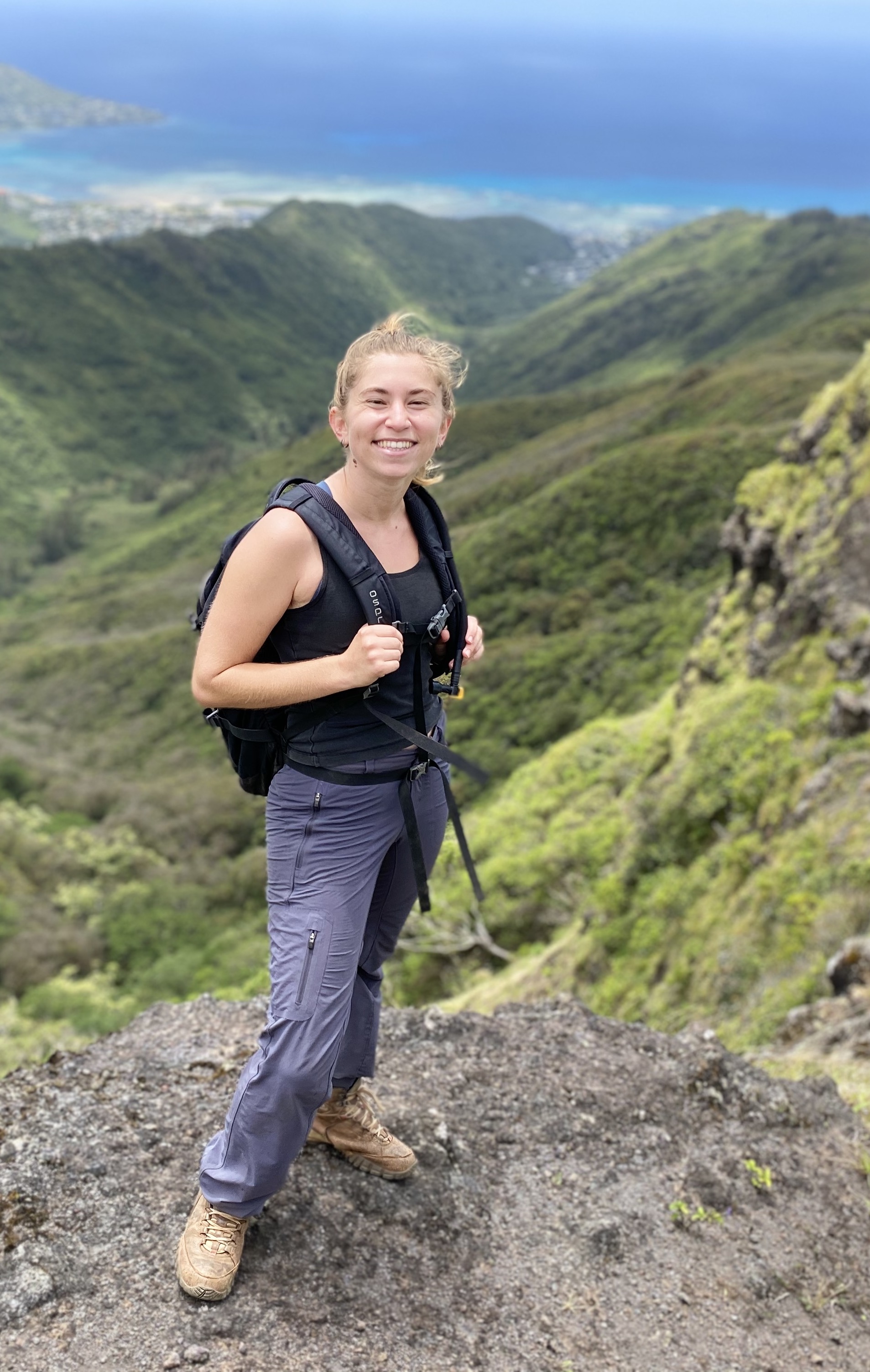
Juliet is an aspiring wildlife biologist and marine data scientist interested in the interactions between landscapes, wildlife populations, and human livelihoods in the face of climate change. She is currently pursuing a Master’s degree in Environmental Data Science from UC Santa Barbara’s Bren School of Environmental Science and Management. Prior to the Bren School, she earned a Bachelor’s degree in Ecology and Evolution from UC Santa Barbara and studied tropical biology in Costa Rica. Her undergraduate research investigated mammalian ecology and mariculture systems. Following this research, she served as a field technician studying endangered populations of flat-tailed horned lizards and steelhead trout in Southern California, as well as invasive species across the Hawaiian islands. These field roles inspired her to delve into environmental data science in order to recognize broad ecological patterns across scientific disciplines.
Moving forward at the Ocean Health Index, she hopes to contribute to our understanding of marine health on a global scale. With open source programming tools and a collaborative approach, she hopes to advise policies to protect habitats, wildlife, and human livelihoods. In her free time, Juliet enjoys snorkeling, surfing, climbing, and playing with her pet gecko, Bembe.
Peter Menzies 

Peter grew up in North Carolina, and studied terrestrial plant ecology at the University of North Carolina at Asheville where his passion for the natural world blossomed into a career path. After several years of involvement in ecology research among the southern Appalachian Mountains, he spent three years as an Environmental Educator for a small nonprofit in Asheville.
In his free time, when he wasn’t climbing rocks, Peter started teaching himself to code and was drawn to the idea of applying data science techniques to combat environmental issues. Following this goal, he drove across the country with his two cats and is now pursuing a Master of Environmental Data Science degree at UC Santa Barbara’s Bren School of Environmental Science and Management. After living alongside the Pacific for the better part of a year, Peter has found a passion for marine ecosystems and is thrilled to apply his growing data science skill set to assessing global ocean health as an OHI Fellow.
Cullen Molitor 
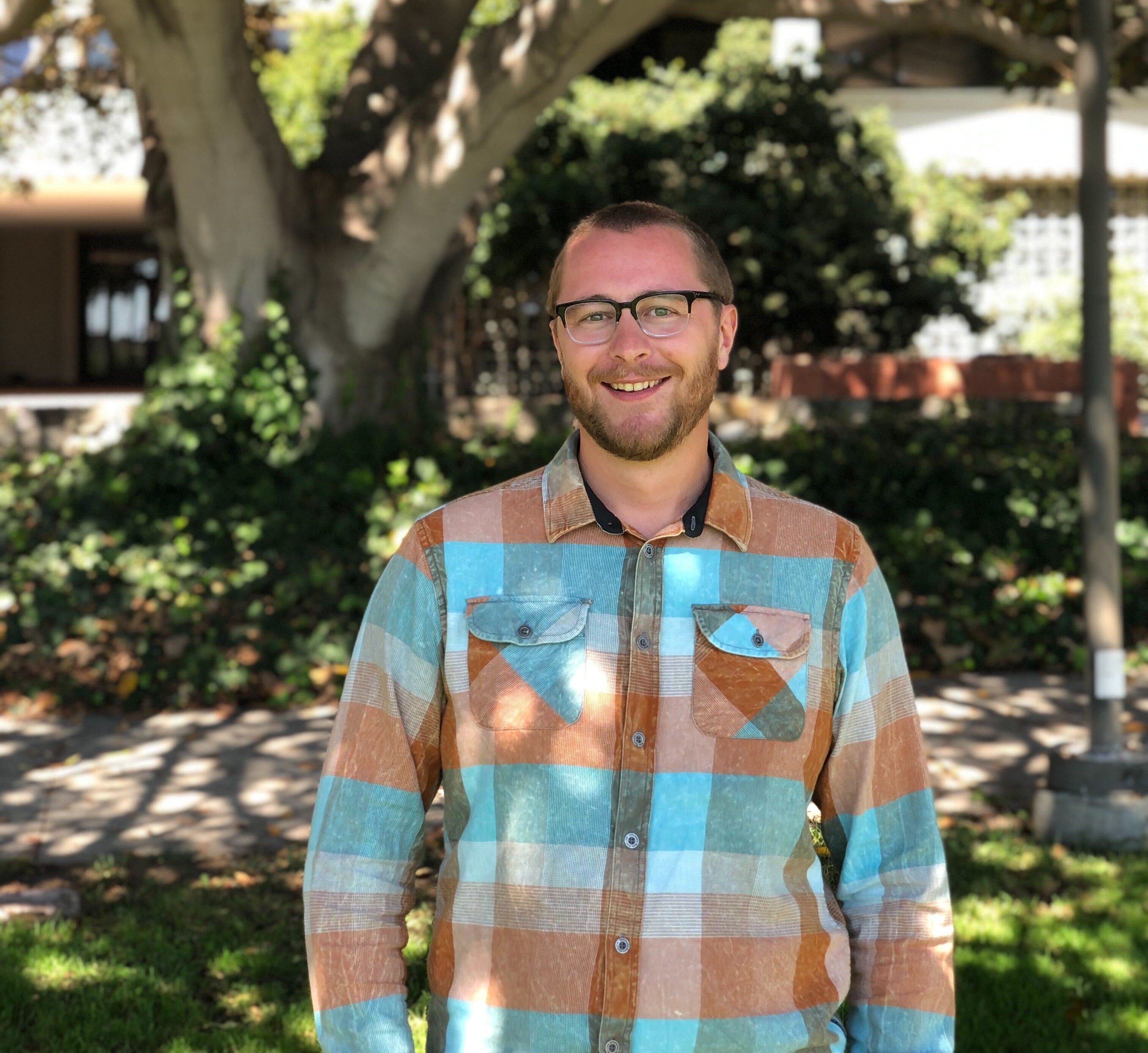
Cullen is a marine ecologist with expertise in long term monitoring of kelp forest environments in California. He graduated from Humboldt State University in 2014 where he studied history, mathematics, and scientific diving. Cullen worked five seasons with Channel Islands National Park's Kelp Forest Monitoring Program where he developed his skills in subtidal field methods. Cullen is interested in how ecological communities change in response to environmental stressors such as climate patterns, fishing pressure, and disease events. Working for a long term monitoring program inspired him to return to school to learn analytical methods that would allow him to better understand the historical context of the data he was helping to collect.
Cullen is currently a master’s candidate of Environmental Data Science at the Bren School of Environmental Science and Management at UC Santa Barbara. At Bren, Cullen has been excited about working with spatial data and remote sensing technologies. He uses these skills for his capstone project where his team is developing a workflow that uses satellite imagery and machine learning to make crop yield predictions in sub-Saharan Africa. As a global OHI fellow, Cullen is excited to continue working in marine science with his expanded data processing, modeling, and presentation skills. He is glad to participate in a program that seeks to improve our understanding of the health of our global oceans.
2020 Fellows
Madeline Berger 

A San Francisco Bay Area native, Madeline learned to scuba dive in the Monterrey Bay at age 15 sparking a passion for coastal and ocean ecosystems. Madeline has a Master's degree from the Bren School, specializing in Conservation Planning and focusing on Environmental Data Science. She also holds a B.A. in Economics from the University of California Los Angeles, where she also minored in Environmental Systems.
As an OHI fellow, she leveraged her interdisciplinary background and strong data analysis skills to assess ocean health on Tetiaroa Island.
Laura Ingulsrud 
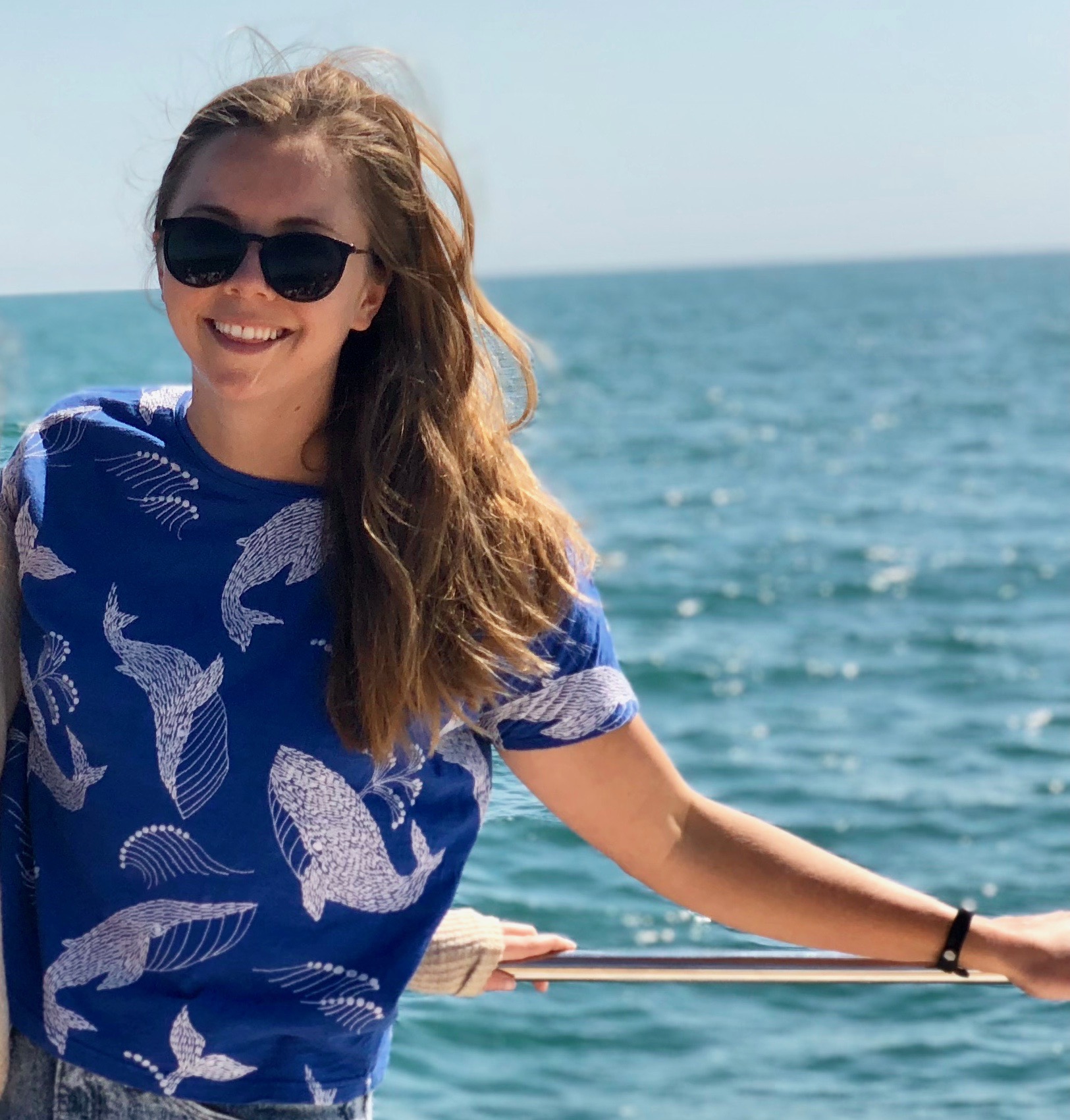
Laura grew up in Sacramento, CA and Tokyo, Japan, but has lived in Santa Barbara for the past 10 years. She moved here to get an Environmental Studies degree at UCSB and quickly fell in love with the central coast. Laura also has a master's degree from the Bren School of Environmental Science & Management specializing in Coastal Marine Resources Management and Conservation Planning with a focus in Environmental Data Science.
As a global OHI fellow, Laura combined data science with marine science and policy to help inform sustainable ocean management. Laura spends her free time playing in the ocean, obsessing over whales, and enjoying good food with friends.Sara Orofino 
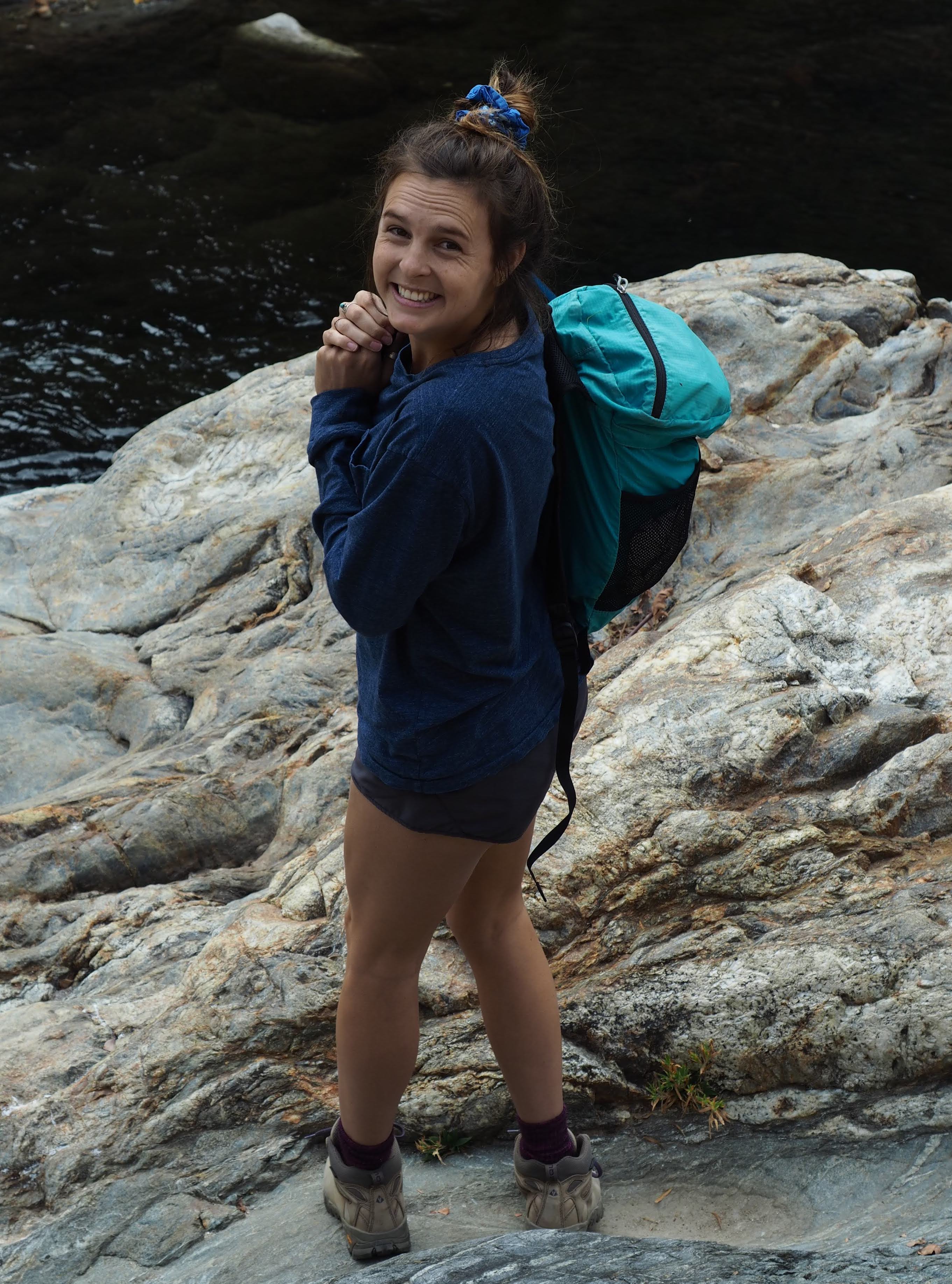
Sara grew up in Placerville, California a town in the Northern Sierras. She graduated in 2014 from Oregon State University with a B.S. in Zoology. After college, she spent four years bouncing around from California to Southeast Asia and the Bahamas leading scuba diving tours, teaching marine science courses, and communicating scientific research to broad public audiences. She then obtained a masters degree from the Bren School of Environmental Science & Management, specializing in Coastal Marine Resource Management with an Environmental Data Science focus. As an OHI fellow used her data science skills to inform management solutions protecting threatened coastal resources and the communities that rely on them. In her free time, Sara loves to snorkel, scuba dive, read good books, and explore with friends.
2019 Fellows

Gage Clawson 
Gage grew up in Manteo, North Carolina, a town located on a small island in the Outer Banks. He graduated from the University of North Carolina at Chapel Hill in 2018 with a B.S. in Statistics and Analytics and a B.A. in Music. Throughout college Gage performed in many of UNC's ensembles, including the Jazz, Trumpet, and Wind Ensembles. Although he has a passion for music, his passion for statistics and the environment is stronger. Seeing firsthand the effects of environmental degradation on his hometown inspired his interest in environmental science.
Gage started as an OHI Fellow as a first-year student at the Bren School, pursuing a specialization in Coastal Marine Resources Management with a focus in Environmental Data Science. He now is the lead analyst for the project! In his free time, Gage is an avid trumpet player, hiker, and general outdoorsy person.
Molly Williams 
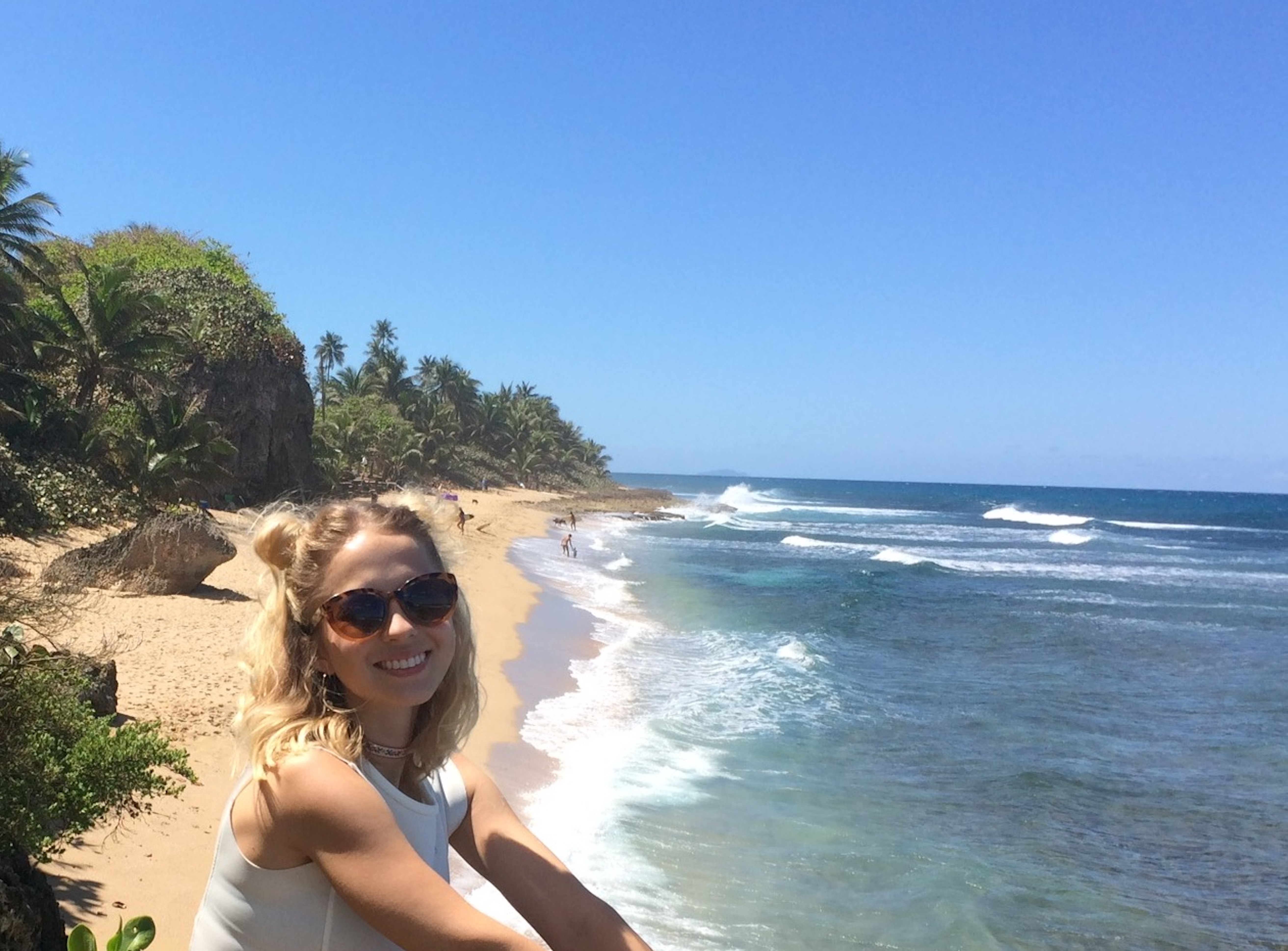
Molly is originally from Seattle, WA and grew up in and around the Pacific Ocean. She received her undergraduate degree in Environmental Studies on the other coast at Mount Holyoke College. During this time, she spent a semester abroad studying in the Turks and Caicos Islands where she was captivated by the marine life as well as the challenge of managing human-environment relationships. After spending a few years teaching math in Hawaii and then wrangling microbes at an algae biofuel startup in Florida, Molly returned to UCSB to obtain a master's degree from the UCSB Bren School of Environmental Science & Management.
As an OHI fellow, Molly leveraged her data science skills to help in the preservation of both cultural and ecological systems.
2018 Fellows
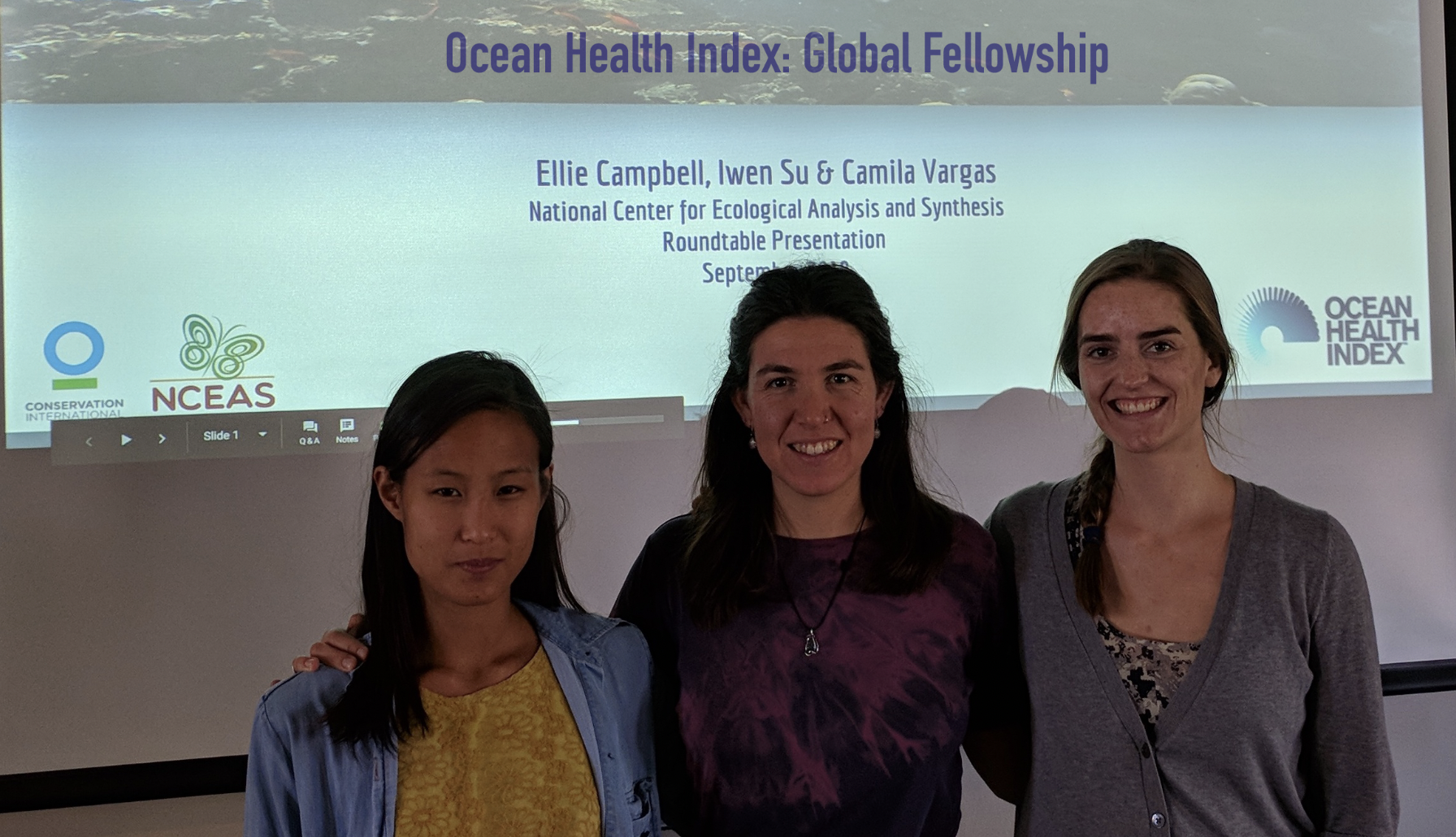
Camila Vargas 

Camila is originally from Santiago, Chile and holds a degree in Biology from Pontificia Universidad Católica de Chile (PUC), with a major in ecology and specialization in natural resources management. She also holds a Master's degree from the Bren School of Environmental Science and Management, as a Latina America Fisheries Fellowship, with specialization is in Coastal Marine Resource Management.
Her focus on marine resources is motivated by her passion for ocean and marine life as well as her desire to develop solutions, using the best available science, for threatened coastal resources which are the main livelihood for many coastal communities.
Iwen Su 
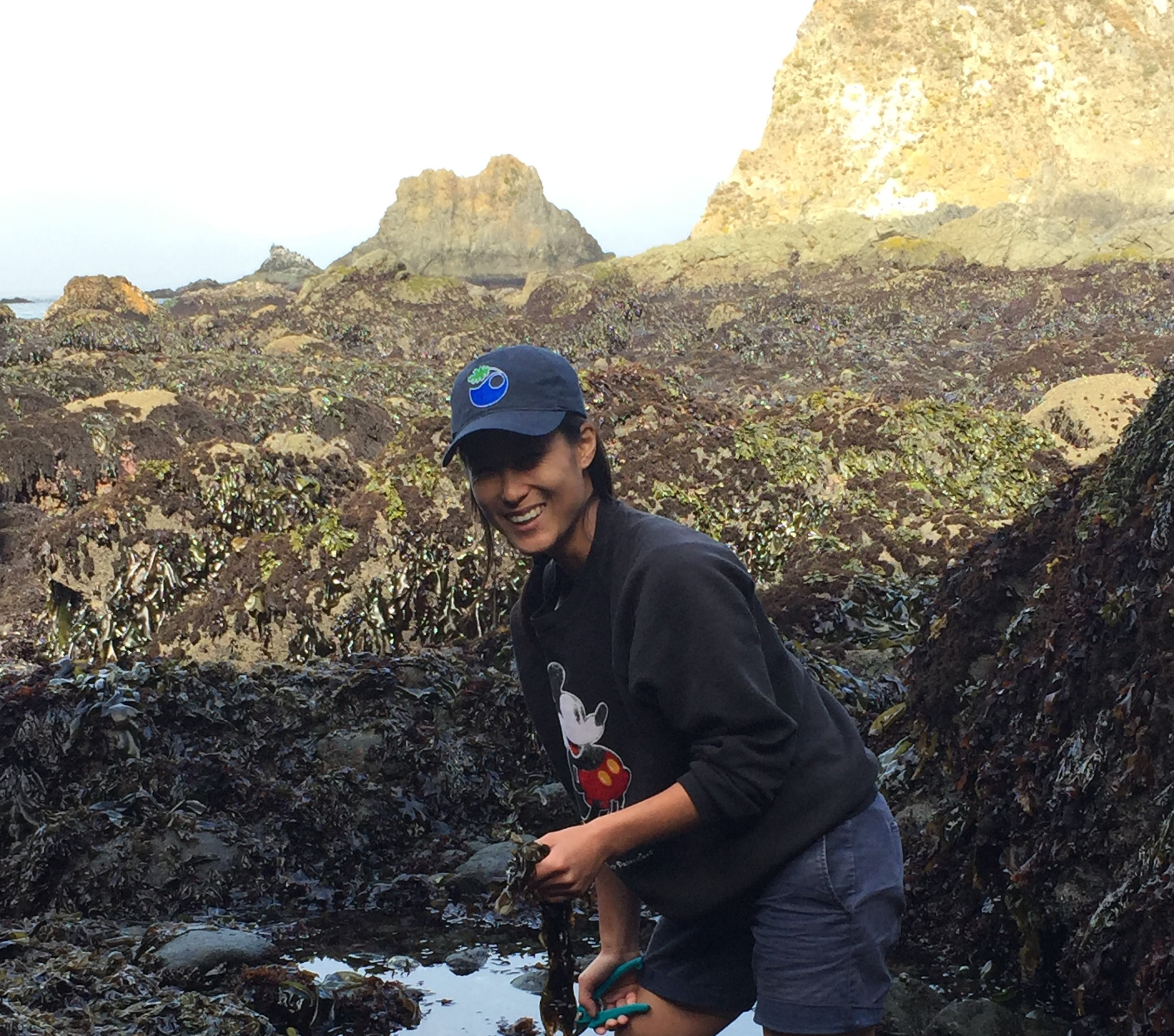
Iwen grew up in San Diego and Taiwan, and received her B.A. in Biology, Marine Emphasis from Occidental College. She also holds a Master's degree from the Bren School of Environmental Science and Management, with a specialization in Coastal and Marine Resources Management.
Her career interests include marine spatial planning for fisheries and aquaculture and seafood sustainability. Outside of school, Iwen enjoys diving artificial reefs, and drawing pictures of sea-creatures to hang on her walls.
Ellie Campbell 
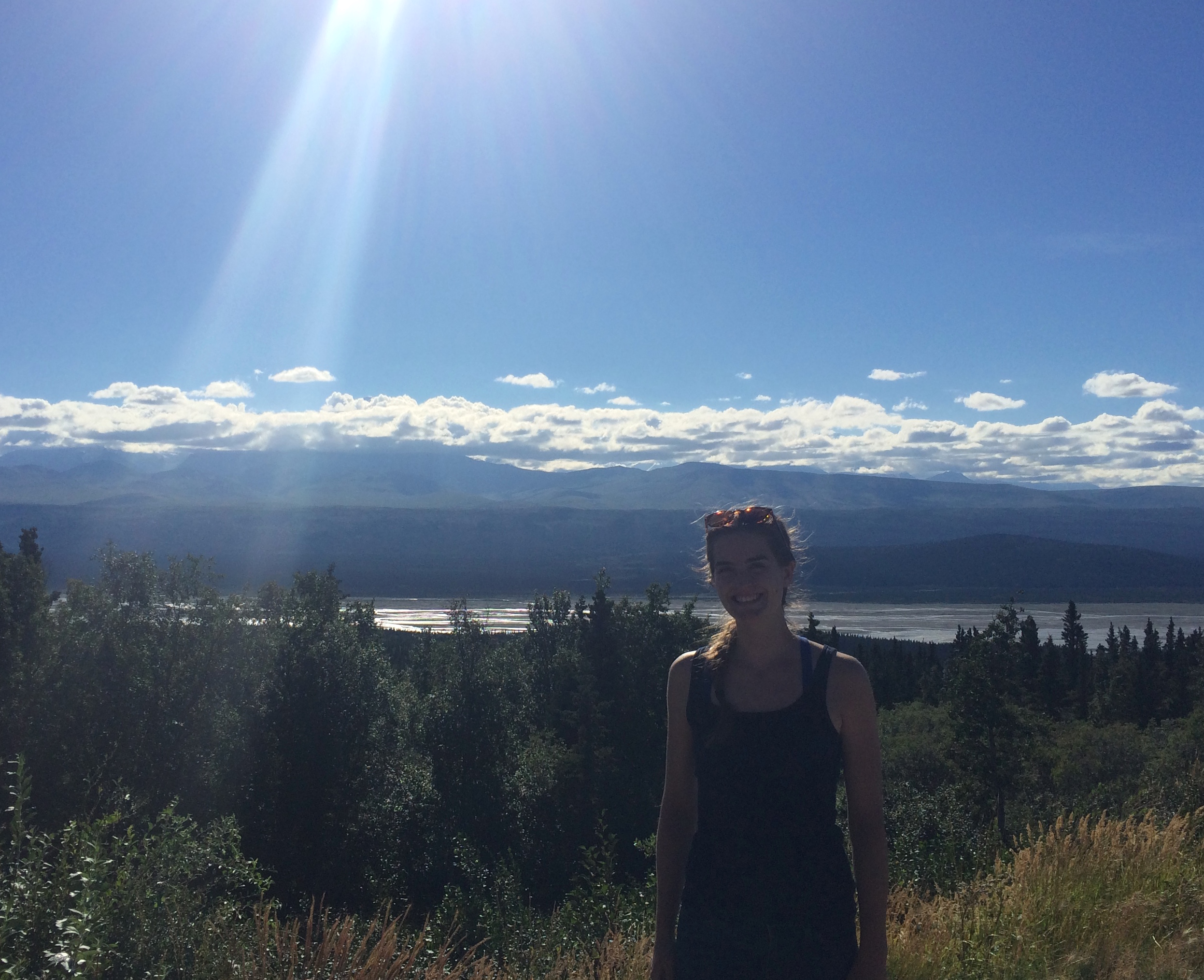
Ellie graduated from the Bren School of Environmental Science & Management, where she pursued a Masters of Environmental Science and Management with a specialization in Energy and Climate. Originally from Anchorage, Alaska, Ellie graduated from Colorado College in 2016 with a B.A. in Mathematics. In her free time, she enjoys spending time outdoors skiing, running, and playing ultimate frisbee.